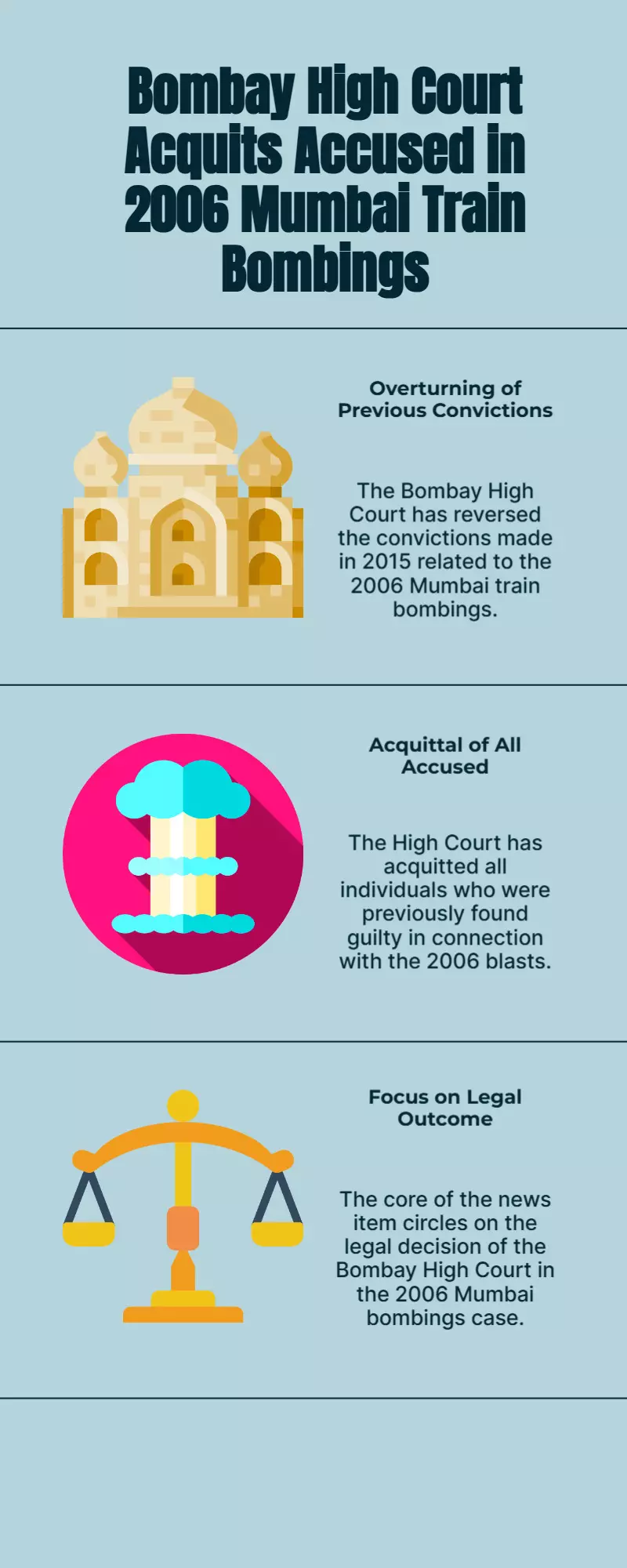Mumbai 2006 blasts: Bombay HC acquits all accused, overturns 2015 convictions.

By : Krishna Mishra
7/11 Mumbai Train Blasts Case: Bombay High Court Acquits All Accused After 18 Years
In a major development, the Bombay High Court has acquitted all the men convicted in the 2006 Mumbai train blasts case. The court strongly criticized the Maharashtra Anti-Terrorism Squad (ATS), stating that it "utterly failed to establish offences beyond reasonable doubt" against the 13 accused.
The verdict overturns the 2015 judgment by a special MCOCA court that sentenced five people to death and seven to life imprisonment. One of the men sentenced to death had died of COVID-19 in jail in 2021 but was posthumously acquitted as well.
What Happened in the 2006 Mumbai Train Blasts?
On July 11, 2006, a series of seven bomb explosions struck Mumbai’s suburban train network during the evening rush hour, killing 189 people and injuring over 800. The attacks were termed one of the worst terrorist strikes in India.
Why Were the Accused Acquitted?
A Bench of Justices Anil S Kilor and Shyam C Chandak delivered a 671-page judgment that highlighted multiple flaws in the prosecution’s case:
Unreliable Witnesses: The witnesses, including taxi drivers and eyewitnesses, delayed their statements by over 100 days. The court found their testimony unreliable due to inconsistencies and memory gaps.
Confessions Not Voluntary: The High Court found that the confessional statements were not given voluntarily and lacked necessary legal approvals. Medical reports also suggested possible torture.
Faulty Evidence Handling: The prosecution failed to prove proper custody and sealing of the recovered explosives, including RDX, circuit boards, and timers. This made the forensic evidence questionable.
Invalid Identification Parade: The Test Identification Parade (TIP) conducted by a Special Executive Officer was deemed invalid, as he wasn’t authorized to conduct it.
No Proof of Explosives Used: The court noted that the prosecution couldn't even confirm the type of explosives used in the attack, weakening the entire case.
Court’s Strong Remarks
The judges warned against “false closure” in terror cases, stating:
“Creating a false appearance of having solved a case undermines public trust and gives a misleading sense of resolution, while the real threat may still be at large.”
They also stressed the importance of punishing the actual perpetrators, rather than securing convictions based on weak evidence.
